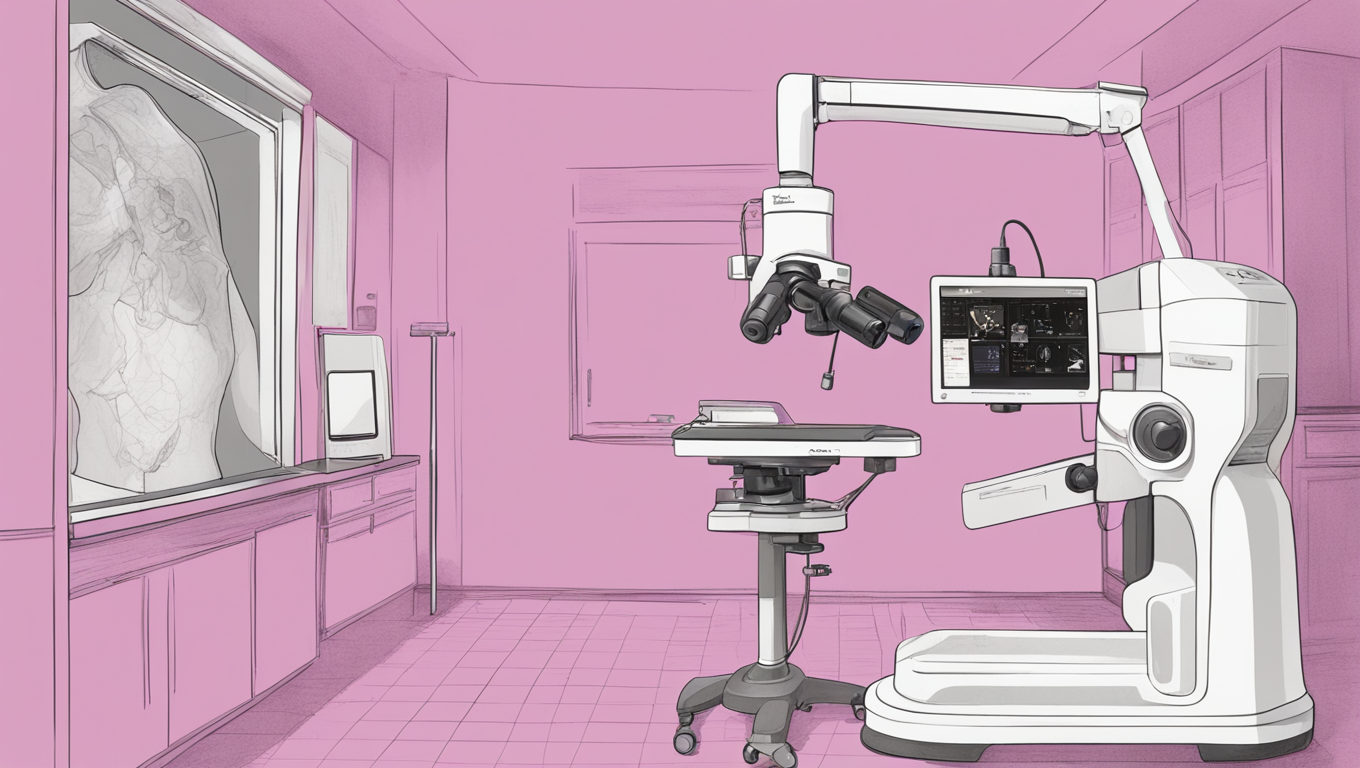Every day in Hong Kong, on average 15 women are diagnosed with breast cancer, making it the most common cancer affecting women in the city. Breast cancer is also the third leading cause of cancer deaths among women in Hong Kong. Worldwide, breast cancer is the most frequently diagnosed cancer and the leading cause of cancer death in females. With such alarming statistics, early detection is essential for effective treatment.
Since the 1980s, mammography screening has been the key to early breast cancer detection. However, differences in radiologists’ diagnostic accuracy have often resulted in unnecessary return visits or missed cancer. Furthermore, there is a shortage of breast radiologists worldwide. In an effort to overcome these challenges, artificial intelligence (AI) has emerged as a potential solution.
Numerous studies have demonstrated that AI can perform as well as, or even better than, humans in tasks such as detecting malignant tumors in medical imaging and triaging cases. In Hong Kong, the Hospital Authority has already implemented AI to help triage and detect abnormal findings in chest X-rays. Now, radiologists in Hong Kong are beginning to test and use deep-learning AI software specifically tailored for breast imaging. This software has the potential to increase detection rates for breast cancer and make the interpretation of mammograms more efficient.
Dr. Alta Lai Yee-tak, a consultant radiologist at Pamela Youde Nethersole Eastern Hospital in Chai Wan, Hong Kong, and honorary secretary of the Hong Kong College of Radiologists, expresses excitement about the potential of AI in the field of radiology. She highlights the difference between AI and computer-aided detection (CAD) that has been used in mammography for over 20 years. While CAD relies on pre-programmed algorithms, AI has the capacity to learn from huge datasets and gain insights that may not be immediately apparent to human radiologists.
Radiologists Dr. Julian Fong Chun-yan and Dr. Lui Chun-ying, co-founders of the breast screening center Hong Kong Women’s Imaging (HKWI), have been testing the Lunit Insight MMG, an AI solution for mammography, since 2022. In January 2023, they integrated the software into their center’s workflow, becoming the first and only breast screening center in Hong Kong to formally use AI on a daily basis. The software they are using has been approved by the United States’ Federal Drug Administration.
There are several AI mammography solutions available in the market, including ProFound Breast Health Suite’s ProFound Detection, Kheiron Medical Technologies’ Mia Reader, and ScreenPoint Medical’s Transpara. Dr. Fong emphasizes that Insight MMG is particularly suitable for use in Hong Kong because the majority of the sample cases used to develop the software came from South Korean women. Breast composition varies between Asians and Caucasians, with Asian women having a higher proportion of dense breast tissue, making cancer detection more challenging on mammograms.
While AI shows promise in improving breast cancer detection rates, it is important to view it as a supplementary tool. Dr. Hung Wai-ka, a breast surgery specialist and member of the Hong Kong Breast Cancer Foundation’s management committee, emphasizes that AI should be seen as an additional tool to aid radiologists in the screening process. AI can help detect more early-stage cancers, leading to less invasive treatments and lower overall treatment costs.
However, Dr. Fong cautions that AI software is not perfect and experienced breast radiologists are still needed to interpret findings accurately. Radiologists have access to previous images and clinical information, which can provide valuable context that AI cannot consider in its present state. Dr. Lui Chun-ying emphasizes the collaboration between humans and AI, stating that AI is just alerting radiologists to areas of concern, and it is the radiologists who make the final decision.
Dr. Lai urges caution when analyzing research about AI mammography solutions. She points to a study published in August 2023 in which AI and standard care had similar cancer detection rates during breast screenings in Sweden. However, since the study is relatively recent, a two-year follow-up is needed to confirm the accuracy of AI diagnoses. The study highlights the importance of continued research and evaluation of AI in medical applications.
Training AI is also crucial to ensure that it learns from real-life scenarios and does not amplify biases or mistakes present in the training dataset. Despite the associated challenges, the doctors remain optimistic about AI’s future in the field. Dr. Lui says, “AI is not perfect at the moment, but the technology will improve more and more.”
In conclusion, AI has the potential to revolutionize breast cancer detection and treatment. It can aid radiologists in interpreting mammograms more efficiently and detecting cancer at early stages. However, it is important to remember that AI is not meant to replace human radiologists but to complement their expertise. With proper training and continued research, AI has the potential to significantly improve healthcare outcomes in the field of breast cancer.





Use the share button below if you liked it.